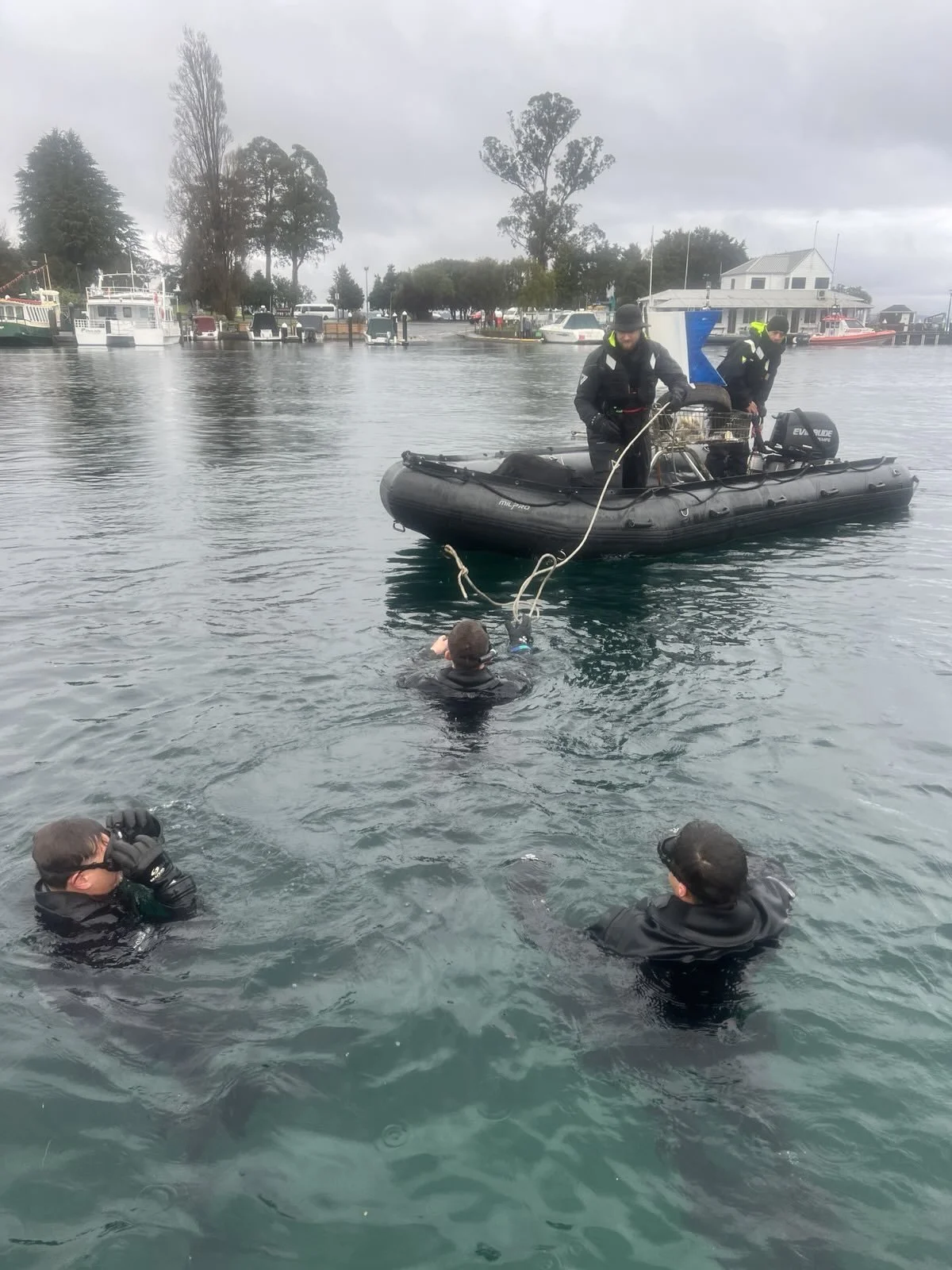Navy dives in to fight pollution
By Bronson Perich
Navy divers use rubbish collection as a training exercise in Lake Taupō and Waikato River.
There is a war being waged beneath Taupō Waters. A bathtub in Acacia Bay, concrete at Motutere, and a schoolbook in the river near Taupō Bungy are just some of the “bombs” being dropped into Taupō waters.
The war on filth has even caught the eye of the Royal New Zealand Navy, which recently sent trainee divers to join the battle in Lake Taupō.
New Zealand’s largest lake is the ideal freshwater training environment for Navy divers. It’s big, it’s deep, it’s cold, technically difficult at 360 metres above sea level, and a lack of salt makes it harder to stay afloat.
A Navy spokesperson says the higher altitude tests the divers’ technical proficiency under challenging conditions.
“Diving at elevation presents unique physiological and operational challenges that require precise dive planning, careful equipment calibration, and a thorough understanding of decompression theory.”
While rubbish recovery isn’t their primary reason for deploying here, dive trainees are assigned rubbish duty as a training mission.
This year’s “catch” at the Taupō Marina and Lakeside Reserve was only enough to fill one trailer due to restricted timeframes, but included a supermarket trolley, a tyre, and other loose rubbish.
A previous sortie in 2022 amounted to several trailers full of broken glass, road cones, tyres, schoolbooks, pet-poo bags, and drug paraphernalia pulled from the Waikato River between Matawhero (Gates Park) and Motutāhae (Cherry Island).
Local divers and kayakers have enlisted in the war as well, with Acacia Bay-based Volcanic Dive Squad and Wellington-based friends from Ghost Diving recently hitting Motutere Bay, recovering 122.2kg of rubbish.
Almost two-thirds of that haul comprised glass bottles and concrete. Their last catch at Motutere in June weighed in at 173.8kg.
An earlier excursion at Acacia Bay South saw them trawling a metal bathtub out of the water.
Sharon Graham, the “Mother Hen” of the two-family squad, says what started as a cry for help to recover a drifting pontoon has quickly become a community service in high demand.
“People need help with finding stuff.”
As the calls for help continued, they noticed the sheer amount of rubbish dumped in waterways.
So, the scuba treasure hunters added trash-trawling to their list of services. Their efforts have even seen them receive some funding from Taupō District Council.
“We’re much—you know—grateful. Thanks for that.”
These funds, along with koha from the community, help the dive squad cover expenses as they rumble in the rubbish. They hope to have the opportunity to train with the Navy next time they dive in.


